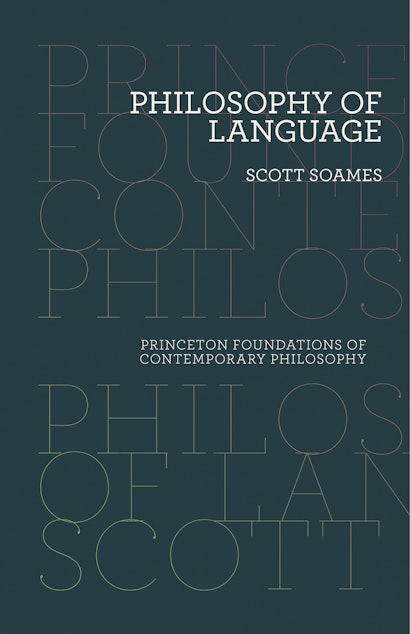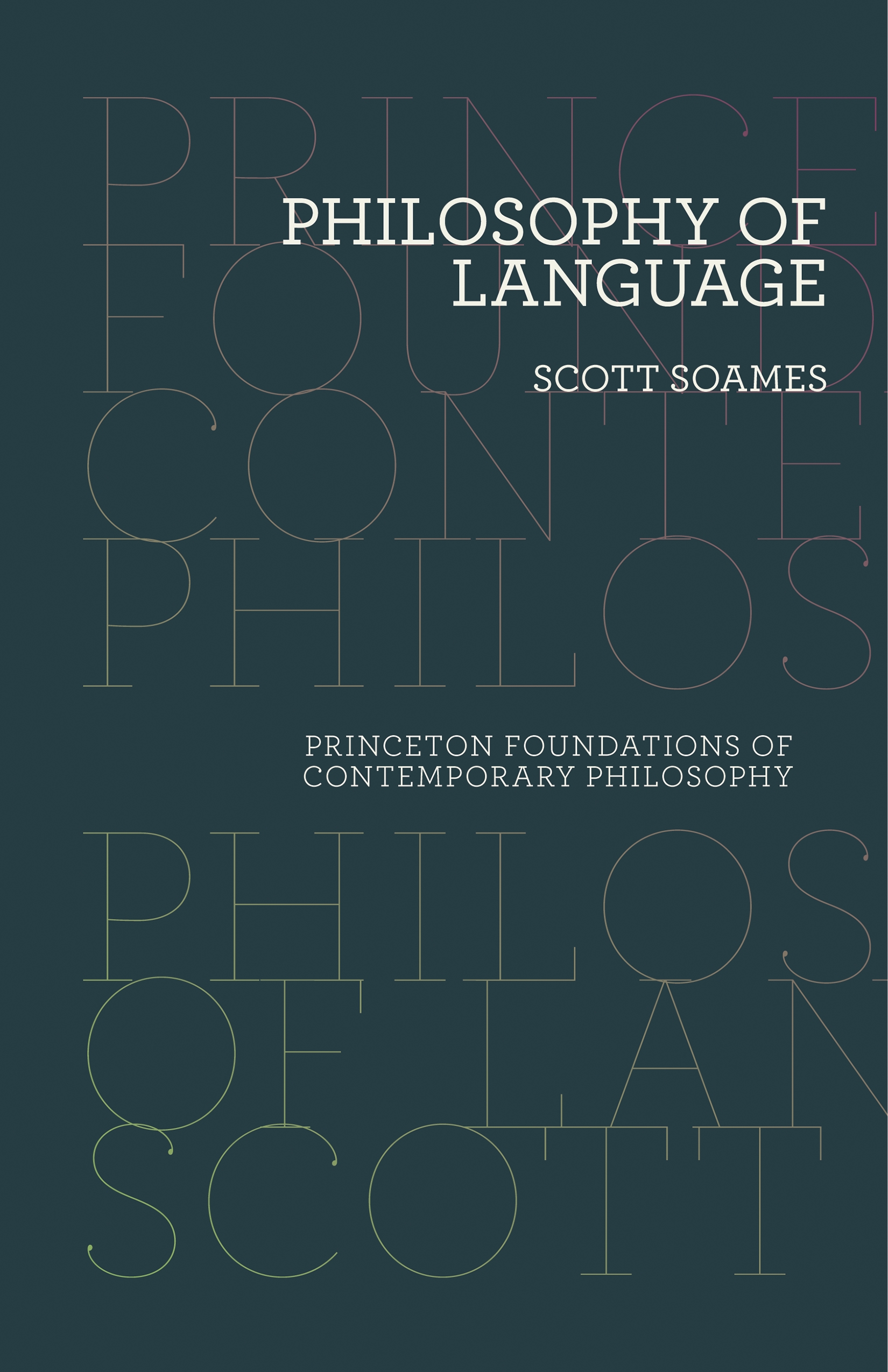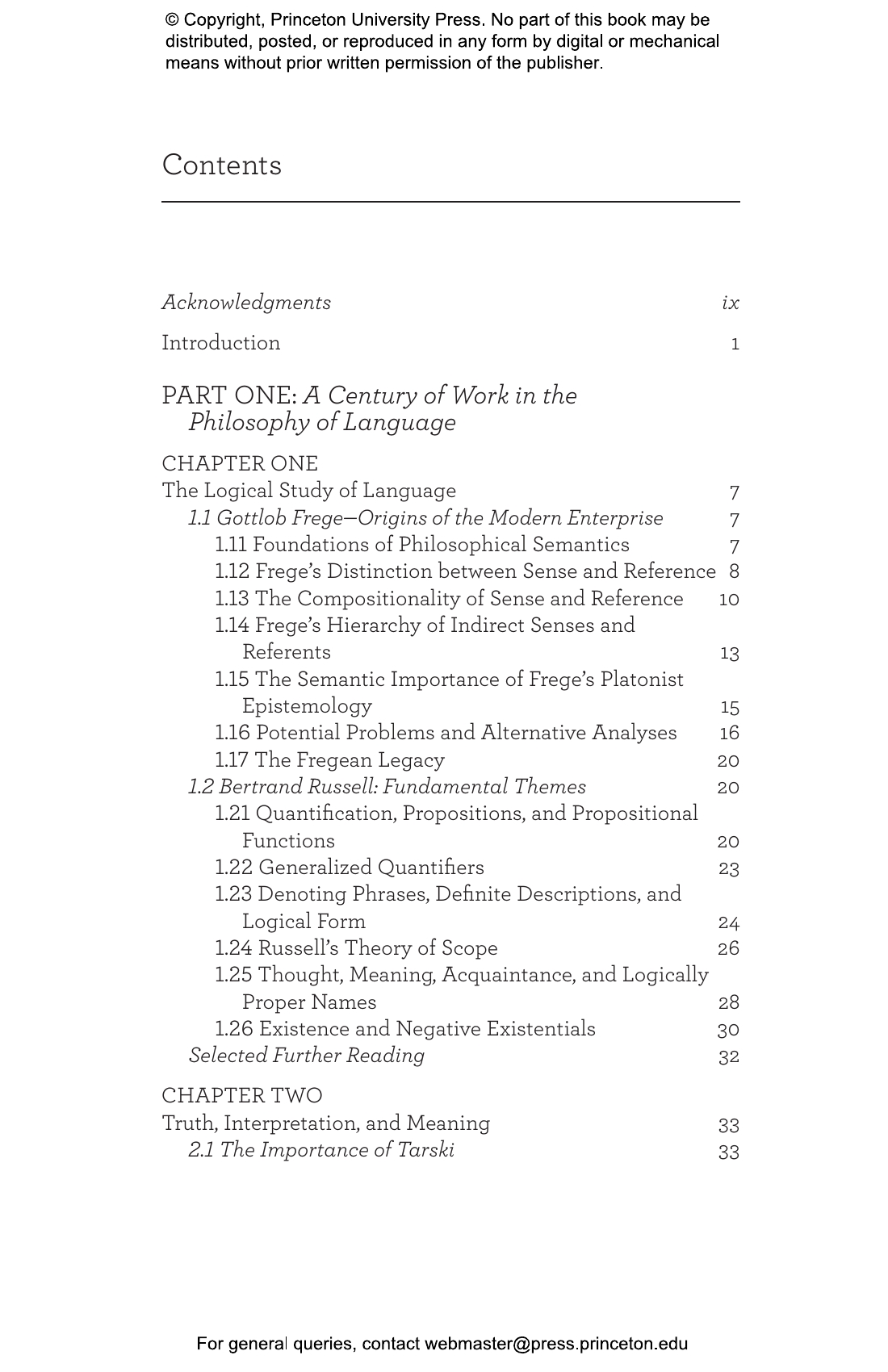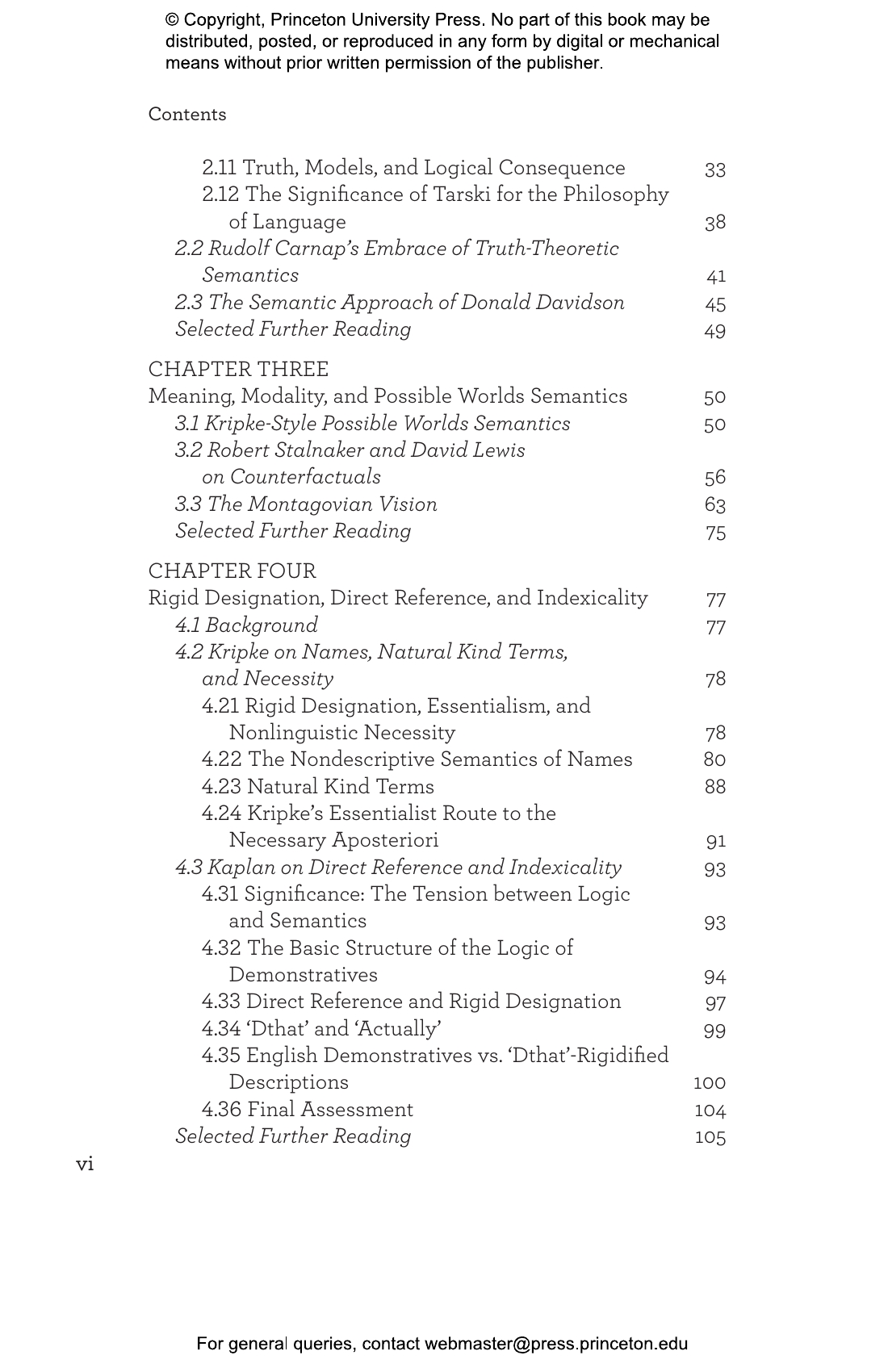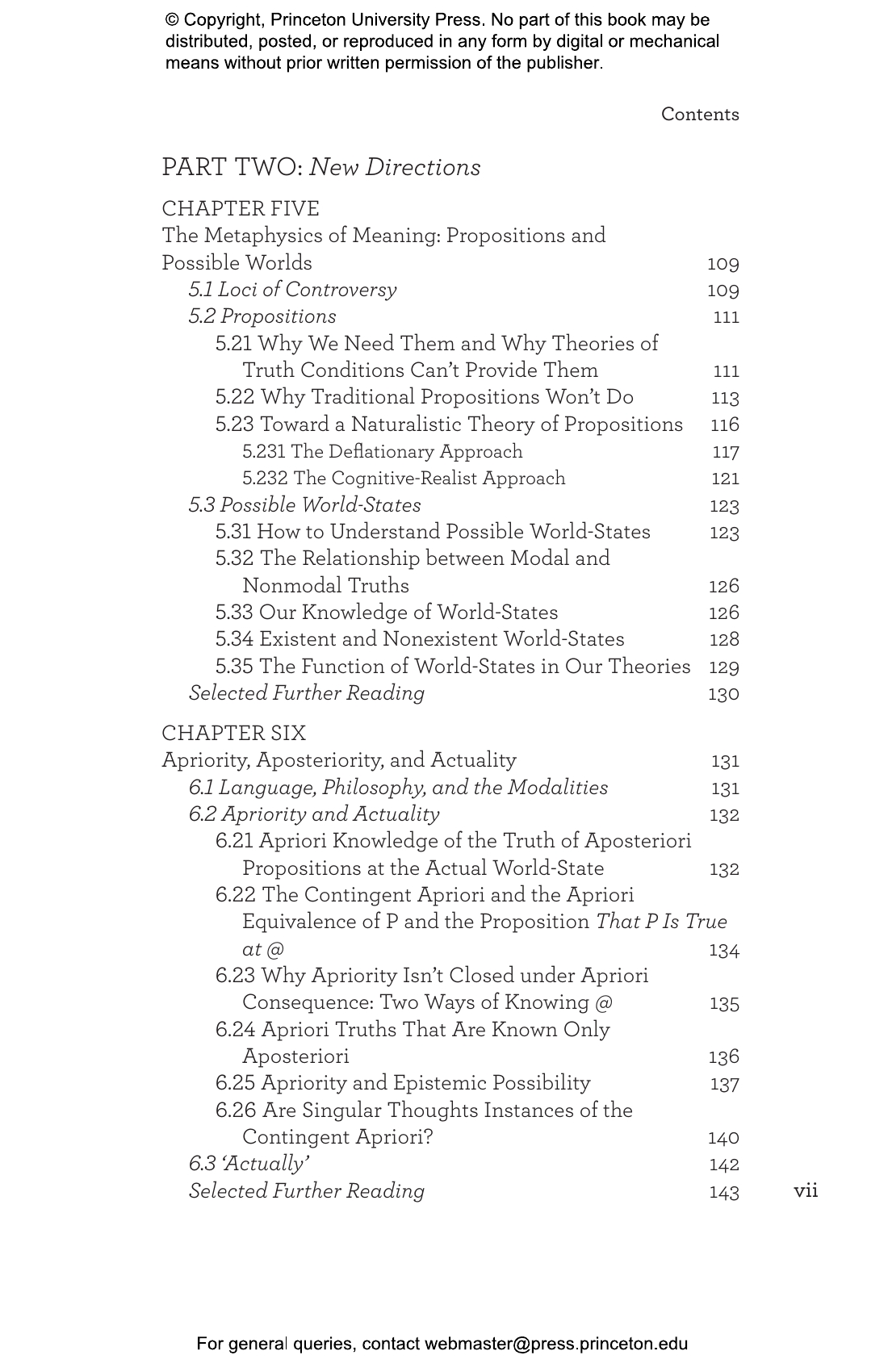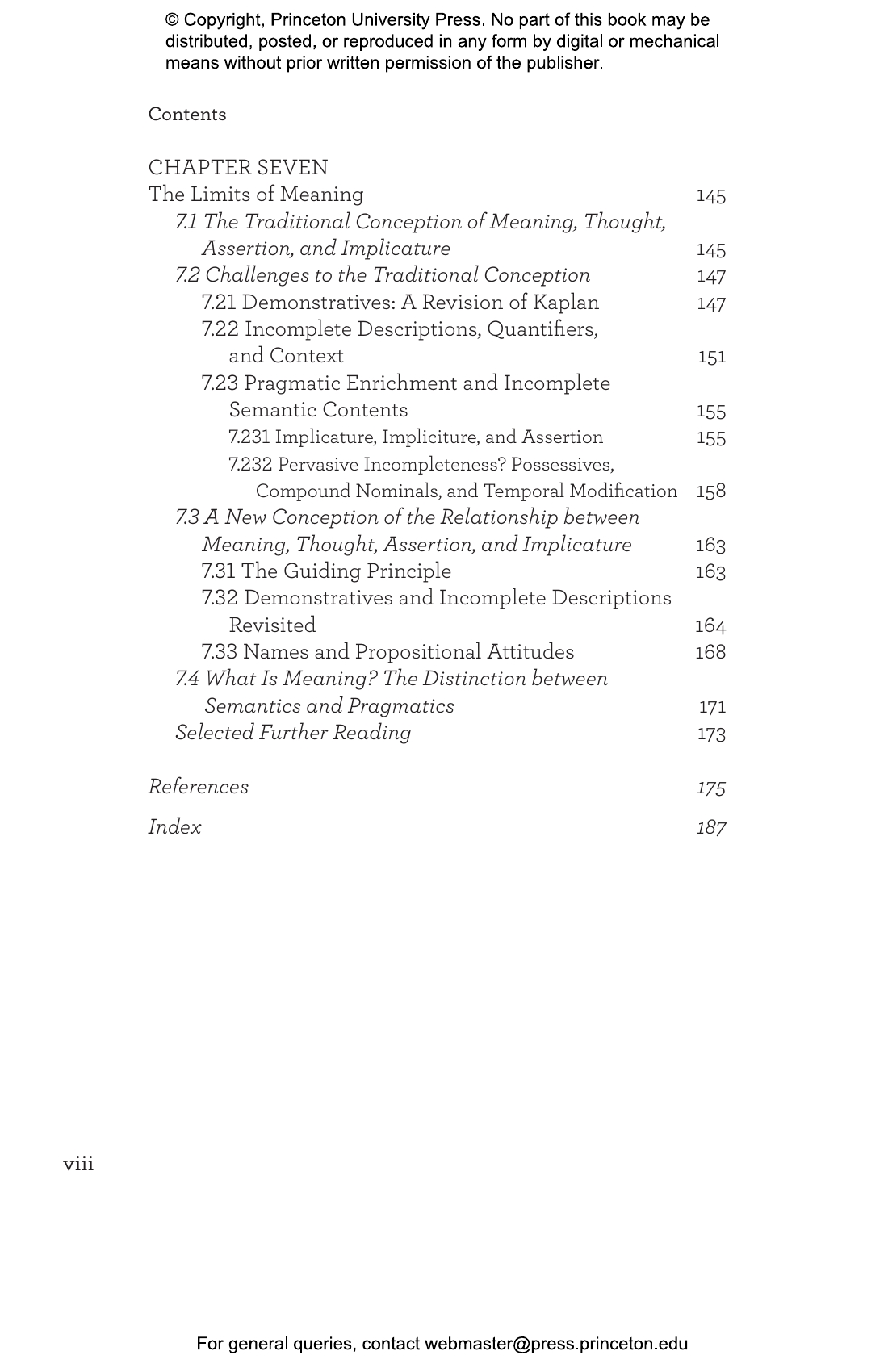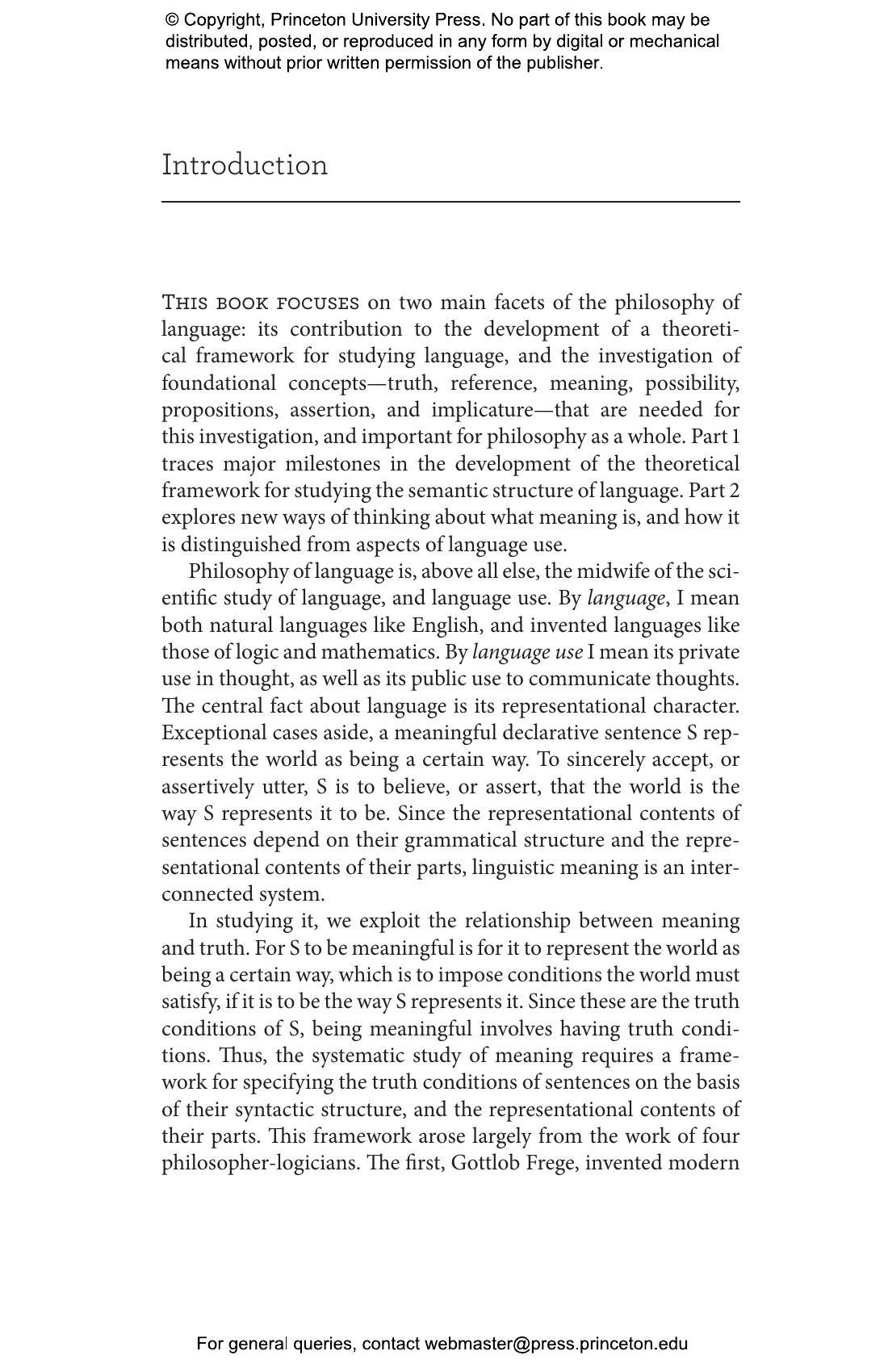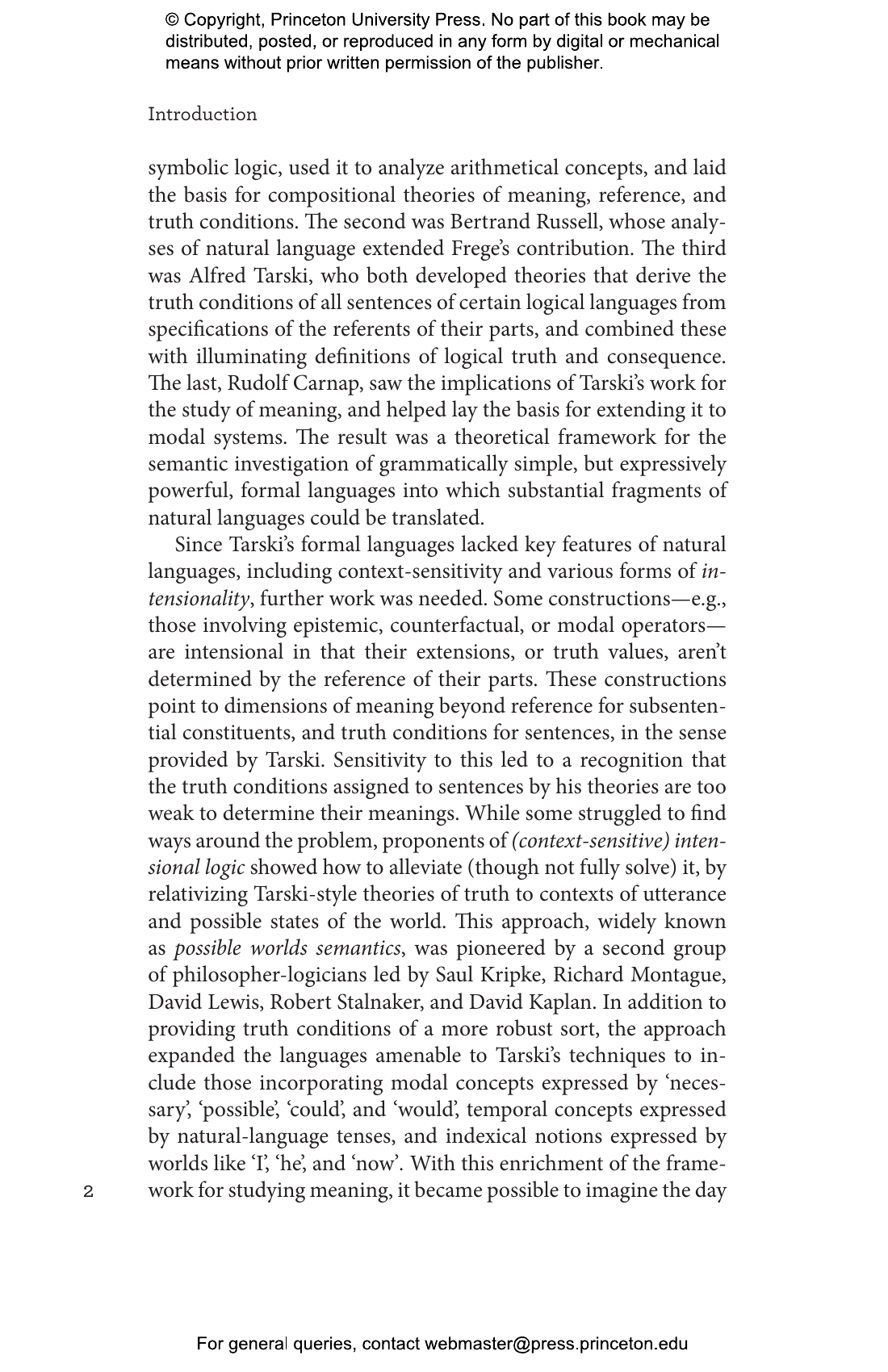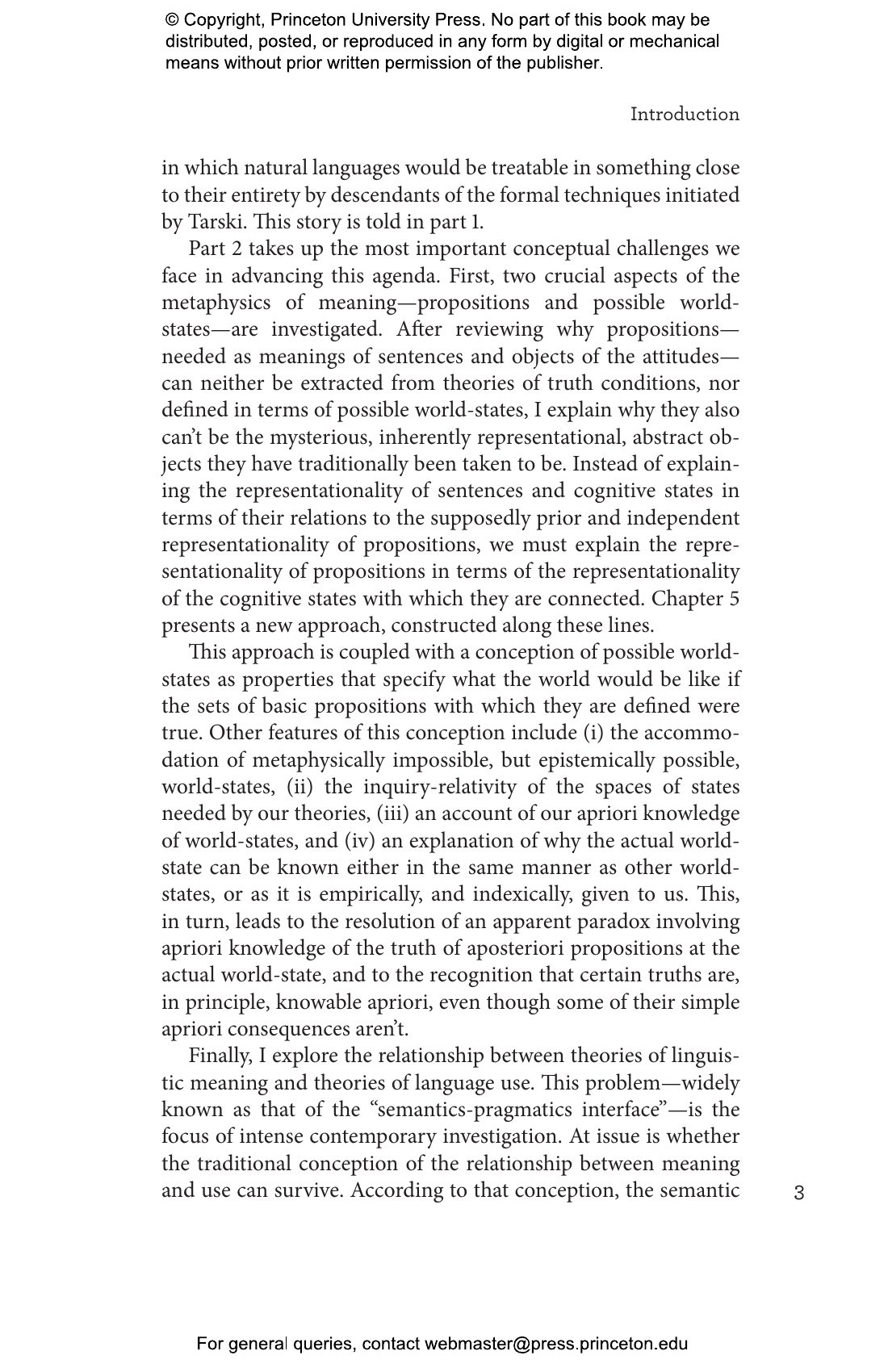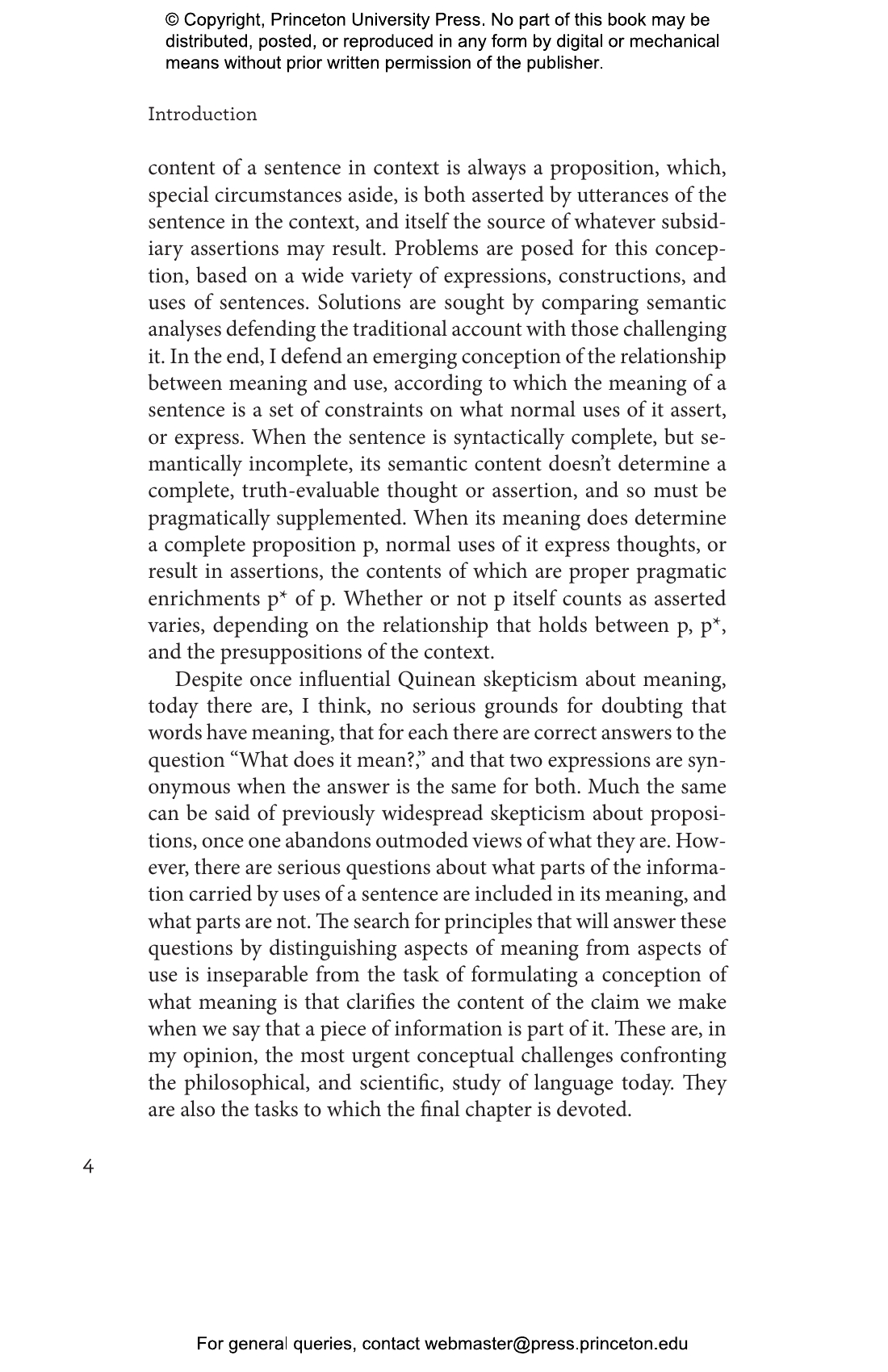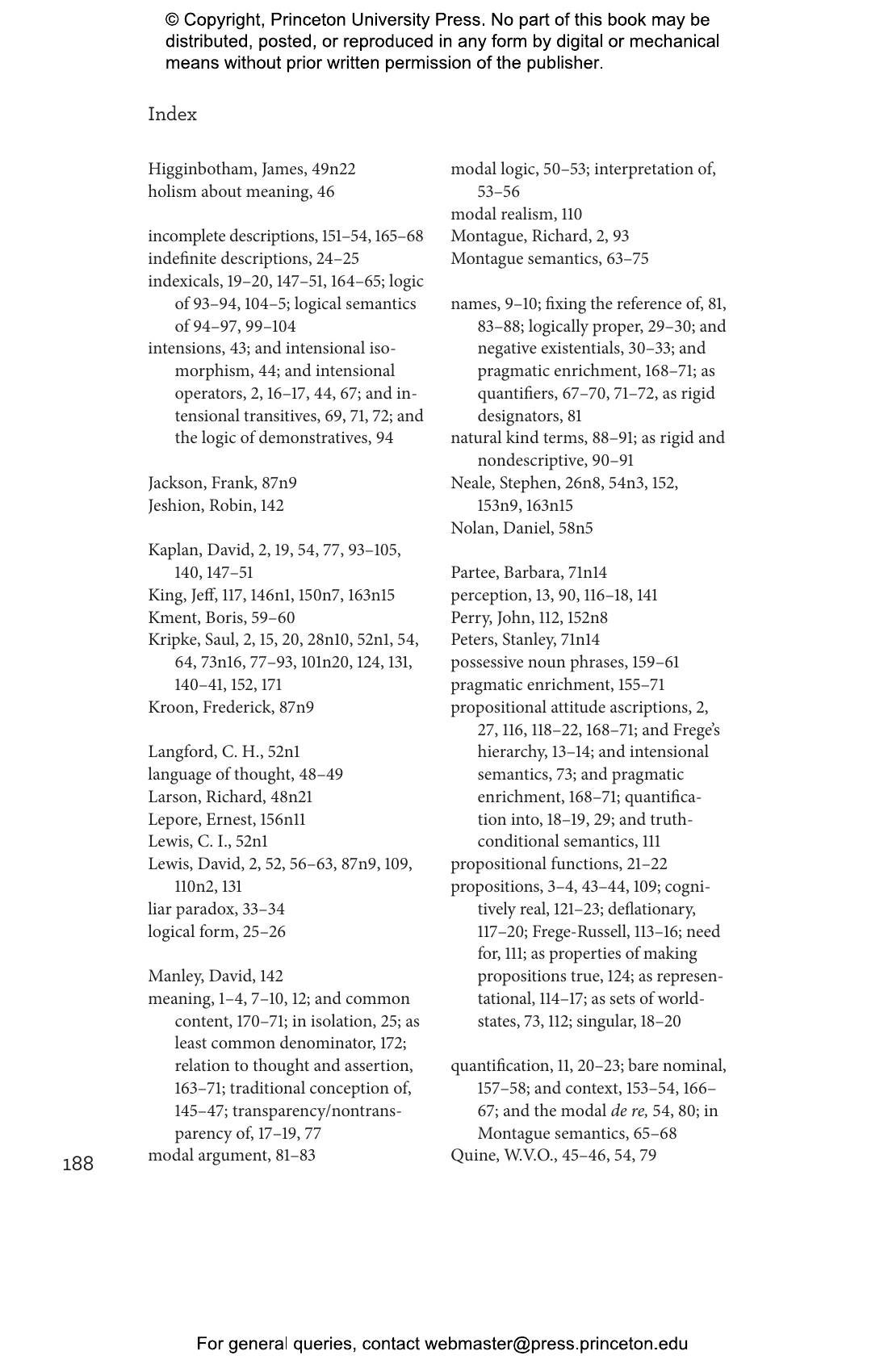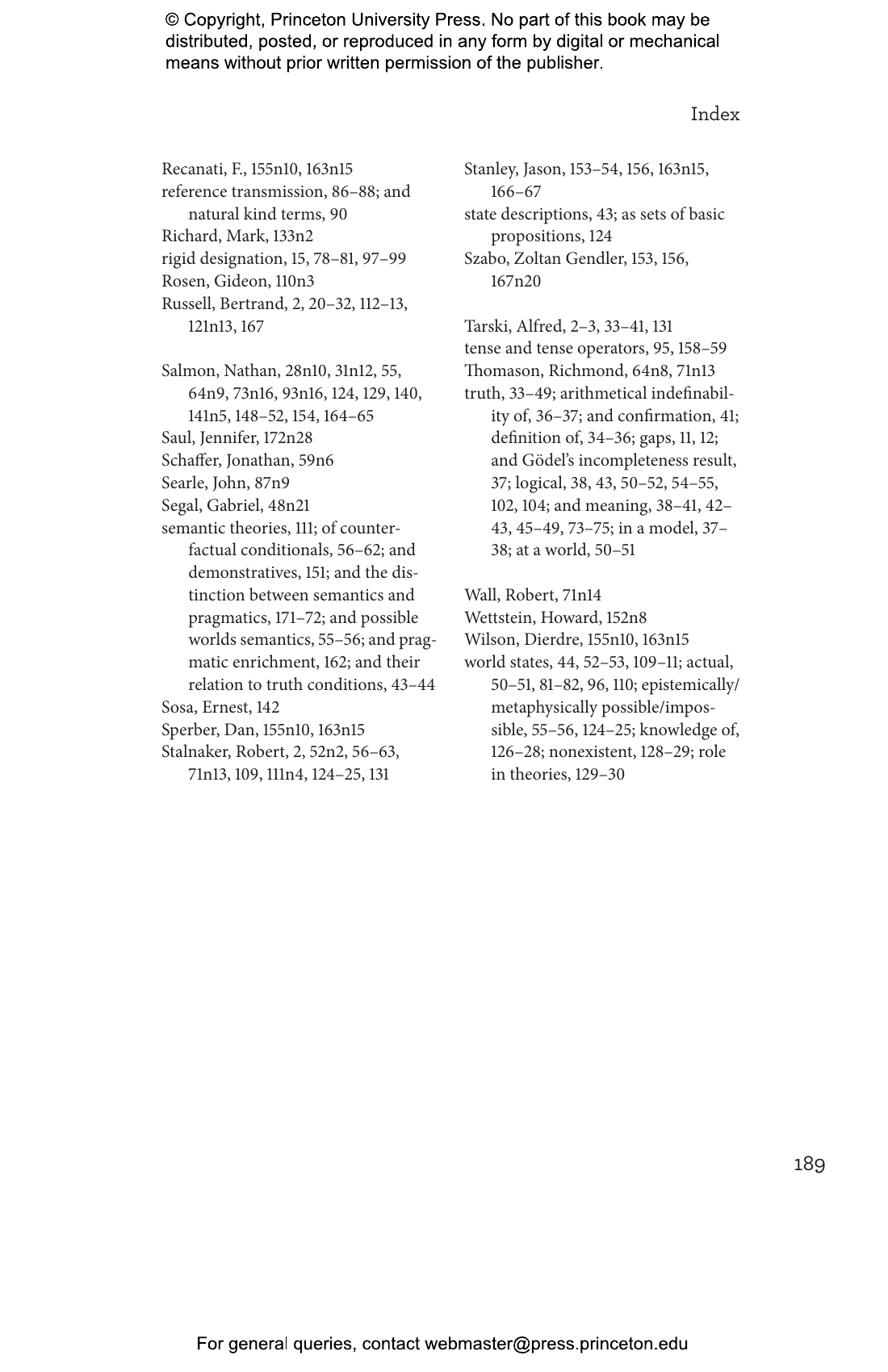In this book one of the world’s foremost philosophers of language presents his unifying vision of the field—its principal achievements, its most pressing current questions, and its most promising future directions. In addition to explaining the progress philosophers have made toward creating a theoretical framework for the study of language, Scott Soames investigates foundational concepts—such as truth, reference, and meaning—that are central to the philosophy of language and important to philosophy as a whole. The first part of the book describes how philosophers from Frege, Russell, Tarski, and Carnap to Kripke, Kaplan, and Montague developed precise techniques for understanding the languages of logic and mathematics, and how these techniques have been refined and extended to the study of natural human languages. The book then builds on this account, exploring new thinking about propositions, possibility, and the relationship between meaning, assertion, and other aspects of language use.
An invaluable overview of the philosophy of language by one of its most important practitioners, this book will be essential reading for all serious students of philosophy.
Scott Soames is professor of philosophy at the University of Southern California. His many books include What Is Meaning?, Philosophical Essays, Reference and Description, and Philosophical Analysis in the Twentieth Century (all Princeton).
- Acknowledgments
- Introduction
- PART ONE: A Century of Work in the Philosophy of Language
- CHAPTER ONE
- The Logical Study of Language
- 1.1 Gottlob Frege—Origins of the Modern Enterprise
- 1.11 Foundations of Philosophical Semantics
- 1.12 Frege’s Distinction between Sense and Reference
- 1.13 The Compositionality of Sense and Reference
- 1.14 Frege’s Hierarchy of Indirect Senses and Referents
- 1.15 The Semantic Importance of Frege’s Platonist Epistemology
- 1.16 Potential Problems and Alternative Analyses
- 1.17 The Fregean Legacy
- 1.2 Bertrand Russell: Fundamental Themes
- 1.21 Quantification, Propositions, and Propositional Functions
- 1.22 Generalized Quantifiers
- 1.23 Denoting Phrases, Definite Descriptions, and Logical Form
- 1.24 Russell’s Theory of Scope
- 1.25 Thought, Meaning, Acquaintance, and Logically Proper Names
- 1.26 Existence and Negative Existentials
- Selected Further Reading
- CHAPTER TWO
- Truth, Interpretation, and Meaning
- 2.1 The Importance of Tarski
- 2.11 Truth, Models, and Logical Consequence
- 2.12 The Significance of Tarski for the Philosophy of Language
- 2.2 Rudolf Carnap’s Embrace of Truth-Theoretic Semantics
- 2.3 The Semantic Approach of Donald Davidson
- Selected Further Reading
- CHAPTER THREE
- Meaning, Modality, and Possible Worlds Semantics
- 3.1 Kripke-Style Possible Worlds Semantics
- 3.2 Robert Stalnaker and David Lewis on Counterfactuals
- 3.3 The Montagovian Vision
- Selected Further Reading
- CHAPTER FOUR
- Rigid Designation, Direct Reference, and Indexicality
- 4.1 Background
- 4.2 Kripke on Names, Natural Kind Terms, and Necessity
- 4.21 Rigid Designation, Essentialism, and Nonlinguistic Necessity
- 4.22 The Nondescriptive Semantics of Names
- 4.23 Natural Kind Terms
- 4.24 Kripke’s Essentialist Route to the Necessary Aposteriori
- 4.3 Kaplan on Direct Reference and Indexicality
- 4.31 Significance: The Tension between Logic and Semantics
- 4.32 The Basic Structure of the Logic of Demonstratives
- 4.33 Direct Reference and Rigid Designation
- 4.34 ‘Dthat’ and ‘Actually’
- 4.35 English Demonstratives vs. ‘Dthat’-Rigidified Descriptions
- 4.36 Final Assessment
- Selected Further Reading
- PART TWO: New Directions
- CHAPTER FIVE
- The Metaphysics of Meaning: Propositions and Possible Worlds
- 5.1 Loci of Controversy
- 5.2 Propositions
- 5.21 Why We Need Them and Why Theories of Truth Conditions Can’t Provide Them
- 5.22 Why Traditional Propositions Won’t Do
- 5.23 Toward a Naturalistic Theory of Propositions
- 5.231 The Deflationary Approach
- 5.232 The Cognitive-Realist Approach
- 5.3 Possible World-States
- 5.31 How to Understand Possible World-States
- 5.32 The Relationship between Modal and Nonmodal Truths
- 5.33 Our Knowledge of World-States
- 5.34 Existent and Nonexistent World-States
- 5.35 The Function of World-States in Our Theories
- Selected Further Reading
- CHAPTER SIX
- Apriority, Aposteriority, and Actuality
- 6.1 Language, Philosophy, and the Modalities
- 6.2 Apriority and Actuality
- 6.21 Apriori Knowledge of the Truth of Aposteriori Propositions at the Actual World-State
- 6.22 The Contingent Apriori and the Apriori Equivalence of P and the Proposition That P Is True at @
- 6.23 Why Apriority Isn’t Closed under Apriori Consequence: Two Ways of Knowing @
- 6.24 Apriori Truths That Are Known Only Aposteriori
- 6.25 Apriority and Epistemic Possibility
- 6.26 Are Singular Thoughts Instances of the Contingent Apriori?
- 6.3 ‘Actually’
- Selected Further Reading
- CHAPTER SEVEN
- The Limits of Meaning
- 7.1 The Traditional Conception of Meaning, Thought, Assertion, and Implicature
- 7.2 Challenges to the Traditional Conception
- 7.21 Demonstratives: A Revision of Kaplan
- 7.22 Incomplete Descriptions, Quantifiers, and Context
- 7.23 Pragmatic Enrichment and Incomplete Semantic Contents
- 7.231 Implicature, Impliciture, and Assertion
- 7.232 Pervasive Incompleteness? Possessives, Compound Nominals, and Temporal Modification
- 7.3 A New Conception of the Relationship between Meaning, Thought, Assertion, and Implicature
- 7.31 The Guiding Principle
- 7.32 Demonstratives and Incomplete Descriptions Revisited
- 7.33 Names and Propositional Attitudes
- 7.4 What Is Meaning? The Distinction between Semantics and Pragmatics
- Selected Further Reading
- References
- Index
"[Philosophy of Language] covers an impressive number of controversies in philosophy of language. And it does that in a nontechnical way that is likely to prove attractive to many instructors in the field."—Choice
"This is, in my view, a very valuable (though not at all introductory) overview, from a particular perspective, to be sure, of the trajectory on the philosophy of language from Frege to the present. . . . It covers a remarkable amount of ground in a short space, both presenting and contributing to an important network of themes that have shaped the philosophical study of language in the analytic tradition."—Kirk Ludwig, Philosophia
"This is a masterpiece. Scott Soames's work on these topics defines orthodoxy in contemporary philosophy, and having that work distilled into a single volume is enormously valuable. The first half of the book also contains the best analysis and explication yet written of the past century of work in the philosophy of language. I'm looking forward to teaching the subject again just so I can use this book."—Jeff Speaks, University of Notre Dame
"This is a very fine overview of philosophy of language from the late nineteenth century to the present. It discusses all the important issues with great lucidity. The treatment of technical material so as to make it accessible to the uninitiated is masterful. In short, this is an absolutely first-rate book. I have no doubt that it will be very widely read."—Jeffrey King, Rutgers University
